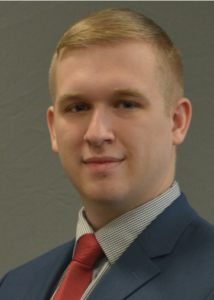Jeremy Braun: Seeking solutions to strengthen coastal economies
This undergraduate earth sciences major is helping to improve the tracking of contaminants in Maine estuaries
 Why are you interested in Strengthening Coastal Economies?
Why are you interested in Strengthening Coastal Economies?
I am interested in this project to help provide a scientific basis for decision-making in the closure of clam flats. The economies of coastal towns, and the lives of individual residents, are impacted when clam flats are closed for extended periods of time as shellfishers become unemployed and lose their income.
By establishing a more precise understanding of pollutant transportation and residence time, we will be able to recommend strategies to mitigate the size of areas closed due to water-quality concerns and the duration of closure. Reducing the amount of time clam flats are closed is a major step towards strengthening coastal economies.
How could your work contribute to a sustainable future in Maine and beyond?
I believe the work I am doing on comparing the accuracy of web-accessible hydrology simulation tools to on-site measurements can benefit future sustainability efforts. If the National Water Model (NWM), a web-accessible platform for estimating and visualizing estimates of rainfall and runoff, can accurately simulate streamflow forecasts over time periods of days and weeks on a small scale such as Frenchman Bay, it may help future work in forecasting streamflows in larger areas.
What do you feel are the most important skills that you bring to your Mitchell Center research team?
Patience and communication. I am able to listen to, learn from, and explain my research to others regardless of their background. I find these to be important abilities for a project where communication between scientists, local governments and coastal residents is crucial.
What have you learned through your participation in this Mitchell Center project?
Thus far, I have learned a lot about the shellfishing industry and the rules and regulations that shellfishers must abide by. I have also learned how local officials are involved with monitoring clamming operations and enforcing rules. Besides that, I have learned a few interesting stories from shellfishers themselves.
What are your personal goals for this project? What do you hope to accomplish?
My biggest goal for this project is to design a web-based outreach and data-accessibility platform that provides resources to predict and describe links between precipitation, watershed runoff, and estuary hydrodynamic conditions and coastal pollution events. This platform uses results from field measurements, runoff modeling, and simulations of land-sea connections for the purpose of co-generating knowledge with stakeholders, developing pollution management strategies, and supporting sustainability solutions for shellfishing communities.
How do you like to spend your free time/down time?
I love to explore Maine, whether it’s near the university, Down East, or up north. Whenever I have an extended amount of free time I am most likely driving around and exploring!
What’s your ultimate Maine experience?
Spending the summer of 2019 mapping bedrock geology in the North Woods as part of an internship with the Maine Geological Survey.
